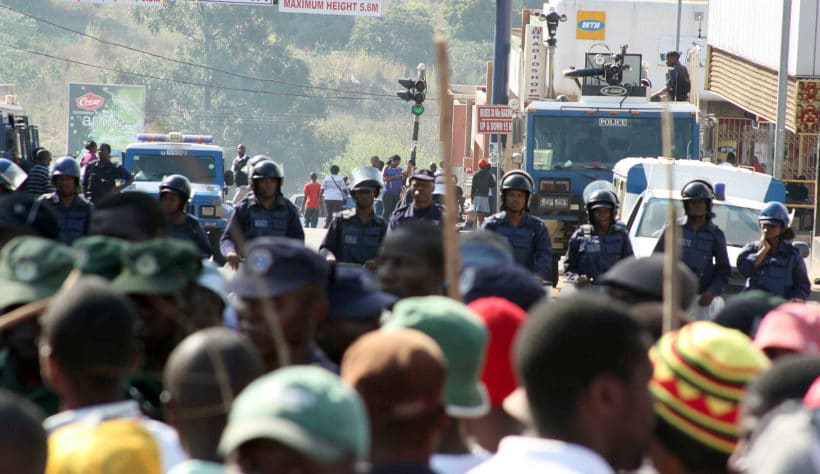
MBABANE, July 16 (Reuters) – Eswatini police fired teargas and water cannon at anti-monarchy protesters on Friday, the head of a teachers’ union said, while videos on social media showed demonstrators running away as shots rang out in the background.
Campaigners organised the latest round of demonstrations after government forces quashed days of violent protests at the end of June against King Mswati III, Africa’s last absolute monarch.
The king denies critics’ accusations of autocratic rule and of using public money in an impoverished country to fund a lavish lifestyle spread across several palaces housing him and his 15 wives.
“Police have dispersed us … at the moment they are driving us out of the town’s outskirts,” Swaziland National Association of Teachers (SNAT) Secretary General Sikelela Dlamini said from Manzini, Eswatini’s second-largest city.
He said they had fired tear gas and used water cannon on the protesters, and that shops and offices were closed.
A video posted to Facebook by the Swaziland Democratic Front, a pro-democracy coalition including political parties, churches and unions, showed protesters singing and dancing in the street before fleeing as shots rang out behind them.
It was not clear who was firing or what they were shooting at.
Government forces fired gunshots and teargas to disperse the previous round of protests, when some demonstrations calling for reforms to Eswatini’s absolute monarchy descended into rioting and looting. On July 1, the army was called in.
King Mswati called an open public meeting known as a Sibaya, usually only held once a year, for Friday, and pro-democracy campaigners called demonstrations to coincide with it.
Mswati is expected to use the Sibaya to make his first public comments on the recent violence, and the meeting may provide a gauge of his popularity after the crackdown.
Unverified pictures on social media showed buses that were supposed to be ferrying citizens to the Sibaya standing empty. An online livestream of the meeting, which was due to start at 10 a.m. (0800 GMT), was pushed back.
State radio was still running normal programming, but said people were arriving at the Sibaya.
National Police Commissioner William Dlamini told the state broadcaster that the police would use maximum force against demonstrators if needed.
(Reporting by Lunga Masuku; Writing by Emma Rumney; Editing by Kevin Liffey)

